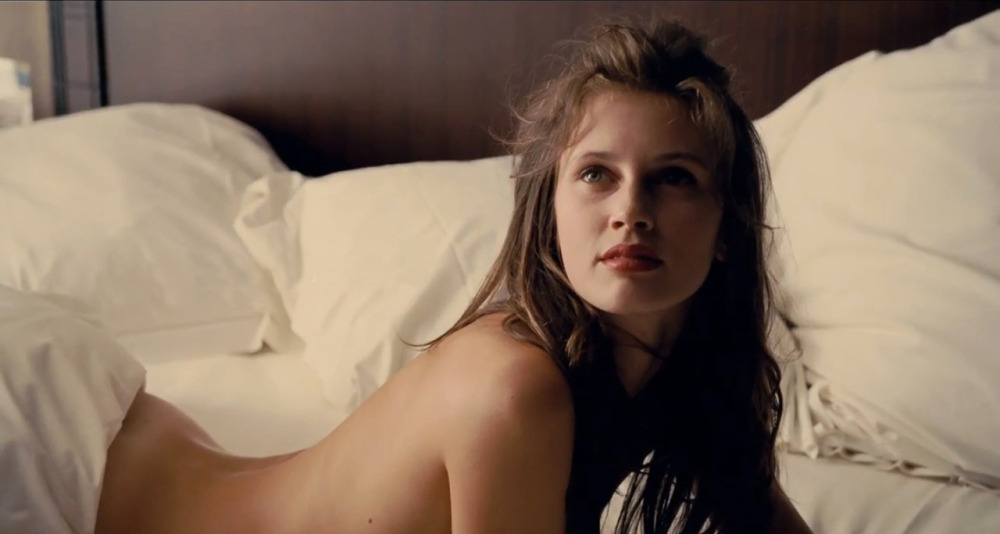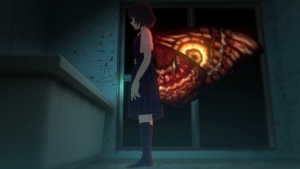
Reviewed for the Miami International Film Festival 2014.
Always one to delve into the most sensual of topics, François Ozon strikes again, this time without some of the twists that populate his other films and less subtlety than one might expect. With Jeune et jolie (Young and Beautiful), he focuses his lens on Isabelle, strictly exploring her sexual discovery over the span of one year. Four seasons for four life-changing and character-building pictures of Isabelle’s life at the age of seventeen. Summer brings the loss of virginity just hours before her birthday, but it is in autumn that we begin to see the changes this nubile woman is going through.
Choosing to focus on a woman during what could arguably be considered her most formative years, Ozon has a playground to run free in. As much as the film meanders in its first acts, soaking in the angst that most coming-of-age films tend to, Jeune et jolie provides an interesting enough portrait of isolation through a woman who seems to know none. When she’s with men, she lets them know she feels comfortable, but Isabelle never looks truly pleased. In fact, one of the few times one sees her having some semblance of joy in sex is through self-pleasure before her loss of virginity to a handsome German boy; an experience that disappoints her to the point where she must remove her mind from her body to just get through it. The few moments where she looks to be enjoying herself in the company of other men, receiving oral from an older gentlemen for one, the camera abruptly cuts away to that post-sex haze where regret has the potential of setting in.
Some films show women finding fulfillment in the role of prostitute — Belle de jour in particular features Catherine Deneuve’s Séverine indulging in her elaborate fantasies of sadomasochism — but the further Isabelle steps into a world full of sensuality, the more distance she places between herself and happiness. This is why Marine Vacth’s detached gaze in every other scene works so beautifully for her character. Every sexual experience looks as though it is taking a toll on her very existence. Yet, with experience comes wisdom, and as Autumn moves on, a montage of clients reveals a certain “eau de confidence” in her. That sense of dread turns into one of at least partial enjoyment. But the life of a working girl is not without consequence and the season to come reveals an even less appealing side to her world.
But Ozon has no interest as depicting sex as something untypical of humanity. Birds do it, bees do it, even educated fleas do it. It is the act of trading sex for money that some find shame in, and that cold realization comes in the fitting season of winter. As mentioned, it’s not exactly thematically subtle. Where the writer-director falters is by involving the perspectives of anyone but Isabelle, be that her mother or her brother, the latter of which almost always shown glimpsing at his sister through a voyeuristic lens. The interactions between her and other characters are what makes these bits less grating, notably those between her and a psychiatrist. It is there that Isabelle, and Ozon, quite literally tell the audience everything that she felt during her time as a call girl. Something like this takes away from the mystique that reading her psyche through facial expressions and body language provided, and yet, it offers Vacth more range and clears up any and every misreading one might have made of this young woman’s motives.
“It was just an experience,” Isabelle says at one moment, but Jeune et jolie reveals quite the opposite. Maybe, just maybe, there is pleasure in this career she once felt so much disgust toward. Maybe that experience is something that can change one for the better. With spring comes rebirth, nostalgia, and the potential for another start. In fact, it’s where the film flourishes most, introducing Charlotte Rampling in a simple role that offers the lead character a mountain of development. As Isabelle progresses out of her youth, coming to terms with the past year of her life, Ozon does too. That sense of maturity echoes in its final scenes, showing just how reflective the film is of its title. Jeune et jolie is an often melancholic work; studying how impacting those days of youthful experimentation can be, not only for its character, but for a director who has toyed with all sorts of sexual experiences in his work. It may not always look like it to those who look in from outside, but to François Ozon and his character, sex really can be a beautiful experience.
–
Jeune et Jolie is currently available on Netflix Instant (as of 8/30/14), for purchase on DVD, and for rental or purchase through Amazon Instant Video
.
Directed by François Ozon; written by François Ozon; starring Marine Vacth, Charlotte Rampling, Frédéric Pierrot, Géraldine Pailhas, and Nathalie Richard; 93 minutes.



 Derek
Derek
 Isabelle
Isabelle